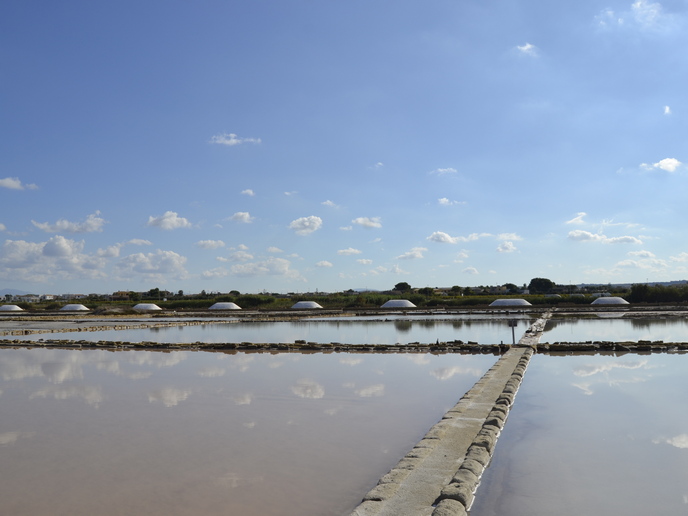Saltworks could be sustainable ‘mines’ for Europe’s CRMs
The Mediterranean Sea is full of valuable minerals, generally in very low concentrations. Ancient civilisations found a way to extract some of this bounty, relying on the natural evaporation of seawater and crystallisation in shallow basins to produce salt. This process is still widely used by saltworks today. In addition to the sodium chloride and calcium salts that seawater yields, the bittern that remains is a highly concentrated solution rich in magnesium, lithium and other critical raw materials (CRMs). This natural concentrating process transforms CRMs into low-hanging fruit accessible with sustainable processes. The EU-funded SEArcularMINE project demonstrated this potential in a fully operational pilot plant. Based on analysis of bittern contents, their market value and technologies research, SEArcularMINE focused on the recovery of magnesium, lithium, boron, rubidium, bromine and sodium sulphate/chloride salts.
Circular economy and renewable-energy driven processes
The pioneering SEArcularMINE approach is based on fully circular, low-carbon and cost-effective processes. As project coordinator Andrea Cipollina of the University of Palermo explains: “The bittern, which saltworks are currently discharging, is our only material input other than water. This is revolutionary – the minerals we are recovering commonly come from resources mined in conditions detrimental to the environment and/or processes requiring chemical reactants.” Electricity is the third and final input, necessary to drive separation processes. SEArcularMINE leveraged electromembrane processes – promising green alternatives to conventional separation methods. These use an electric potential gradient as the driving force of ion transport, and ion-exchange membranes for separation and removal of charged components from solutions. “Electromembrane processes are energy intensive. Ours can be run using sustainable sources to produce electricity on-site thanks to flexible intermittent and variable load operation, adapting to the available energy. Our vision is grid independence using electricity produced from the salinity gradient, and solar and wind energy,” notes Cipollina.
Preserving ancient methods while building Europe’s digital future
Thanks to the synergistic action of dedicated researchers with diverse expertise, SEArcularMINE rapidly scaled up technologies. Within four years, the consortium went from an original idea to a fully operational pilot plant. Located on the premises of partner ResourSEAs, a University of Palermo spin-off, it is near the famous Trapani saltworks from where SEArcularMINE gets its bittern. The ancient salt pans there date back some 2 700 years. They are now part of a nature reserve managed by the World Wildlife Fund, a fitting site for SEArcularMINE’s green and sustainable CRM ‘mining’ venture. “Delocalised production of CRMs in the Mediterranean basin through a fully circular and energy-self-sustained technology will benefit the Mediterranean’s population, economy and sustainable growth tremendously. This is particularly important considering that most interested parties (where saltworks are located – in southern Europe and North Africa) are often in need of economic growth drivers,” notes Cipollina. “The knowledge generated as we successfully addressed multiple engineering challenges and gained operational experience has been huge,” Cipollina continues. The pilot plant successfully demonstrated the technologies’ technical feasibility, producing up to 100 kilograms of target materials daily. The work also spawned ideas for lithium recovery from used batteries as well as several patents, including one for a circular desalination process. Furthermore, the upskilling and exchange of over 80 early career researchers has created a synergic network of professionals to continue this work. ResourSEAs is now actively building partnerships with saltworks around the Mediterranean to plan the first full-scale plants producing minerals from Europe for Europe. Seawater is set to become Europe’s sustainable CRM ‘mining’ solution.
Keywords
SEArcularMINE, saltworks, bittern, CRMs, electromembrane processes, lithium, minerals, CRM, mining, brine, desalination



